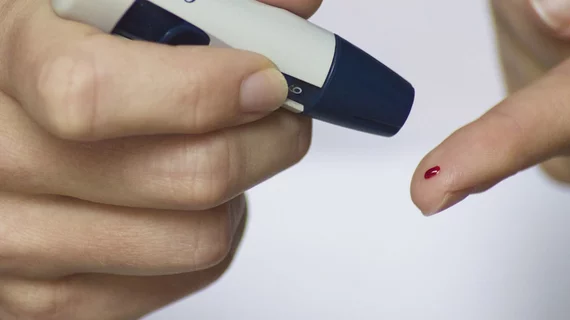How to predict heart failure among patients with diabetes, prediabetes
Researchers have found that a biomarker-based risk score can predict heart failure among patients with diabetes and prediabetes, sharing their findings in JACC: Heart Failure.
The team’s risk score focused on high-sensitivity cardiac troponin-T (hs-cTnT), N-terminal pro-B-type natriuretic peptide (NT-proBNP), high-sensitivity C-reactive protein (hs-CRP) and electrocardiographic-based left ventricular hypertrophy (ECG-LVH).
To test the effectiveness of their model, the authors explored data from more than 17,000 patients. More than 6,700 of those patients had dysglycemia—33.2% had diabetes, the remaining 66.8% had prediabetes.
Overall, the risk score achieved “good discrimination and calibration of predicting 5- and 10-year heart failure risk among prediabetes and diabetes cohorts.”
Elevated levels of hs-cTnT, NT-proBNP and hs-CRP were all independently associated with a higher risk of heart failure. The presence of ECG-LVH was also independently associated with the same risk.
“Participants with diabetes and prediabetes who had low biomarker scores had a low risk of incident heart failure similar to those with euglycemia,” wrote lead author Ambarish Pandey, MD, a cardiologist at the University of Texas Southwestern Medical Center in Dallas, and colleagues. “Among participants with diabetes and high biomarker scores, the risk of heart failure was higher and prescription of sodium-glucose cotransporter-2 inhibitors would be expected to prevent a greater number of incident heart failure events. Future studies are needed with measurement of these biomarkers to guide allocation of preventive therapies in clinical practice.”
The full analysis is available here.

